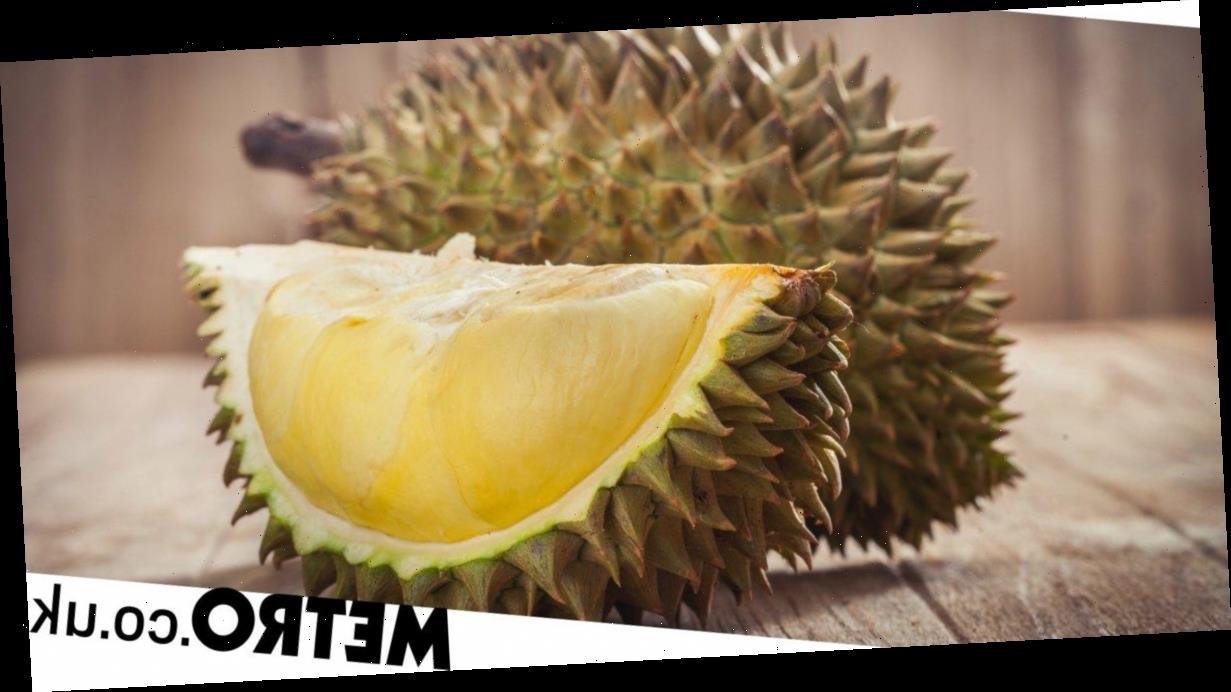It’s the fruit that’s said to smell like a heady melange of ‘pig-s***, turpentine and onions, garnished with a gym sock’.
So you may be concerned to hear that phone chargers could one day be replaced by an organic electricity-generating system using waste from the feared durian.
The pong of this hated fruit is so strong that it once forced the evacuation of a university library.
But brave (and presumably smell-resistant) scientists have worked out a way of using it to ‘create energy stores for rapid electricity charging’.
‘Using durian and jackfruit purchased from a market, we converted the fruits’ waste portions (biomass) into super-capacitors that can be used to store electricity efficiently,’ said Associate Professor Vincent Gomes of the University of Sydney.
‘Using a non-toxic and non-hazardous green engineering method that used heating in water and freeze-drying of the fruit’s biomass, the durian and jackfruit were transformed into stable carbon aerogels — an extremely light and porous synthetic material used for a range of applications.
‘Carbon aerogels make great super-capacitors because they are highly porous. We then used the fruit-derived aerogels to make electrodes which we tested for their energy storage properties, which we found to be exceptional.’
A super-capacitor is basically an energy ‘reservoir’ that delivers energy smoothly.
‘They can quickly store large amounts of energy within a small battery-sized device and then supply energy to charge electronic devices, such as mobile phones, tablets and laptops, within a few seconds.
‘Compared to batteries, super-capacitors are not only able to charge devices very quickly but also in orders of magnitude greater charging cycles than conventional devices,’ Gomez added.
‘Current super-capacitors are made from activated carbon which are nowhere near as efficient as the ones prepared during this project.’
Durian fruit is an ideal substance for use as a battery because, well, no-one wants it. There’s also an urgent need to develop electronics which do not pollute the environment and contribute to climate change.
‘Durian waste, as a zero-cost substance that the community wants to get rid of urgently due to its repulsive, nauseous smell, is a sustainable source that can transform the waste into a product to substantially reduce the cost of energy storage through our chemical-free, green synthesis protocol,’ the professor added.
‘We have reached a point where we must urgently discover and produce ways to create and store energy using sustainably-sourced materials that do not contribute to global warming.
‘Confronted with this and the world’s rapidly depleting supplies of fossil fuels, naturally-derived super-capacitors are leading the way for developing high-efficiency energy storage devices.’
Source: Read Full Article

